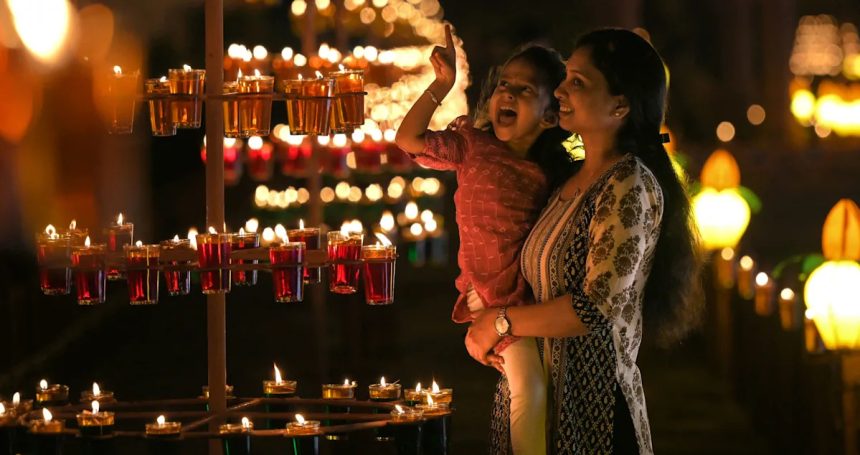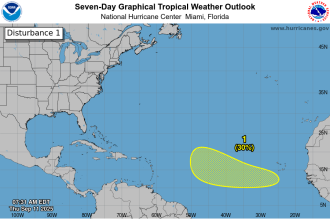This month marks one of Hinduism’s most celebrated festivals. Diwali, the annual festival of lights, begins on Oct. 20. Celebrations last five days, and include activities such as gift-giving, fireworks and even gambling.
Though known as a Hindu holiday, Diwali is celebrated worldwide by people of many faiths, with celebrations occurring in homes, community centers and public gatherings across the globe. While different people have their own unique lore and customs for Diwali, the celebration universally symbolizes “the victory of good over evil, inner light over spiritual darkness, and knowledge over ignorance,” per the Hindu American Foundation.
Why is Diwali celebrated?
There are multiple reasons people celebrate Diwali, and they vary by region.
In northern India, Diwali is typically associated with the return of Prince Rama, an incarnation of the deity Vishnu, and his wife, Sita, an incarnation of the goddess Lakshmi, to the ancient city of Ayodhya after 14 years of exile. As the story goes, the people of Ayodhya celebrated the long-awaited return of their king by lighting lamps all over the city — which people now do today to commemorate that moment. Diwali is derived from the word “deepavali,” which means “a row of lights.”
Community members participate in a Diwali ritual on Oct. 20. (Shammi Mehra/AFP via Getty Images
In southern India, however, Diwali commemorates the day Lord Krishna defeated the demon Narakasura. And in the west, it honors the moment Lord Vishnu sent the demon King Bali to rule the netherworld.
Different faiths have also assigned Diwali with their own meanings: for Jains, it honors Lord Mahavira’s attainment of nirvana; for Sikhs, it coincides with Bandi Chhor Divas, celebrating Guru Hargobind’s release from prison; and for Buddhists, it commemorates Emperor Ashoka’s conversion to Buddhism.
No matter which story is associated with Diwali, they all share the common theme of good defeating evil.
How is Diwali celebrated?
Diwali spans five days of celebration, and different regions of India have their own unique traditions to honor the holiday, with more than 1 billion people honoring it globally each year. The third day of Diwali is considered the most significant.
The holiday is typically honored with shared feasts and parties. Sweets and gifts are exchanged, and fireworks and firecrackers are set off to honor the holiday.
Oil lamps are often lit during Diwali. (Sai Aung Main/AFP via Getty Images)
Many people celebrate by lighting rows of clay oil lamps outside their homes to mark the holiday. Many also create rangoli — intricate geometric or floral designs made with colorful powders — to decorate their homes.
Many people gamble during Diwali, as it’s believed that those who succeed at gambling over Diwali will have good luck the rest of the year.
Is Diwali a federal holiday? What is open and closed for Diwali?
Diwali is not a federal holiday in the U.S. It has, however, become recognized by three states as a state holiday. As of this June, Diwali is recognized as a state holiday in Connecticut, and the celebration became a state holiday in Pennsylvania in October 2024.
People watch a light show on the banks of the Sarayu River on the eve of Diwali, the Hindu festival of lights, in Ayodhya, India, on October 19, 2025. (Sanjay Kanojia/NurPhoto via Getty Images)
California followed suit earlier this month, when California Gov. Gavin Newsom signed a law making the celebration a state holiday starting in 2026. Under the new law, public school students will receive an excused absence to celebrate the holiday, and state employees who celebrate can take time off with pay. Businesses and government buildings are not required to close in states honoring Diwali as a state holiday.
Local authorities have also honored Diwali. In 2023, New York City Mayor Eric Adams made Diwali a public school holiday in the city. The New Jersey Department of Education also allows its students to take off from school in order to observe Diwali.








